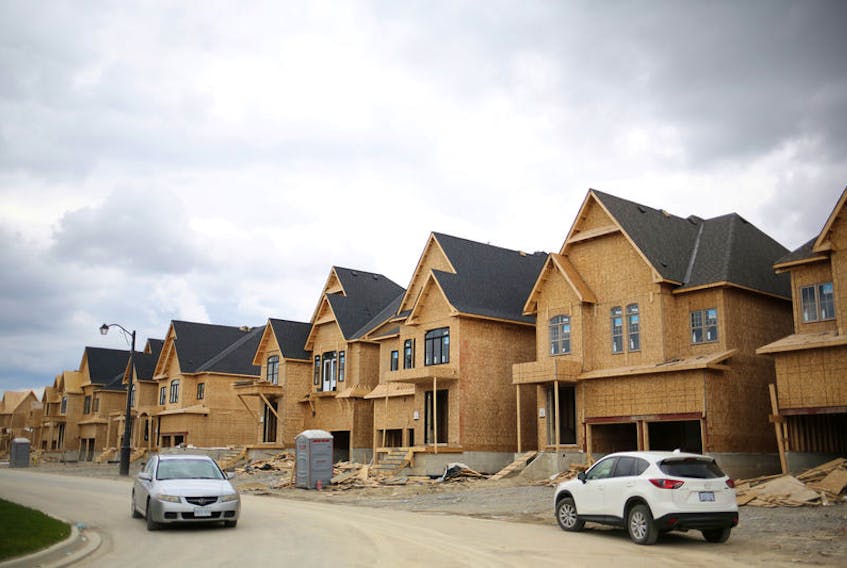By Mumal Rathore
(Reuters) - Canada's housing market will stay stuck in the doldrums, with average prices stagnating this year and then rising 1.7% next year, hardly keeping pace with inflation, a Reuters poll of economists and property market experts showed.
Average house prices in Toronto and Vancouver, hotspots of double-digit rises in recent years, will rise just 1.3% and fall 4% respectively this year despite nearly no prospect of a further rise in the Bank of Canada's 1.75% overnight rate.
The latest survey is further evidence boom times are well and truly over, showing activity in Canada's property market much more in line with global trends, where prices are struggling to go much higher even with low borrowing costs.
"The major risk right now is with the overextended consumer," said Peter Norman, chief economist at Altus Group. "With interest rates now leveled off, this risk is sidelined but there continues to be stress in terms of the consumer's ability to take on increased spending."
While Canada property market experts are downbeat on Vancouver, where house prices have doubled in the last 15 years, they are mostly positive about demand for housing nationally and in Toronto, Canada's biggest city and financial capital.
The survey was conducted May 9-20.
A plurality of analysts, 10, said demand will increase nationwide this year, compared with six who predict no change and three who expect a decrease. For Toronto, where many new immigrants arrive to live, those numbers were 12, five and one, respectively.
But for Vancouver, only six property experts expected an increase in demand, with three seeing no change and nine forecasting a decrease this year.
"Demand for housing is improving but is also different. The growing number of atypical jobs, the improving integration of immigrants on the labor market and the preference of millennials are creating a strong demand for the rental market," said Sebastien Lavoie, chief economist at Laurentian Securities.
Most, however, agreed with BoC Governor Stephen Poloz's recent assessment that the housing market will bounce back to growth this year, outnumbering those who did not by 13 to six.
While that is perhaps not surprising given the recent abrupt softening in the interest rate outlook in Canada as well as the U.S. and many of Canada's trading partners, no analyst polled expected a return to recent boom times.
More than three times the number of analysts said the risks to the outlook were tilted more to the downside than the upside, by 14 to four.
The cost of housing in Toronto and Vancouver also remains prohibitively high. Robert Hogue, senior economist at RBC, called "affordability still at crisis levels" in those cities.
But TD economist Rishi Sondhi noted that "excluding the two priciest major markets would leave the national affordability measure much more in line with its history."
(Polling and reporting by Mumal Rathore and Sujith Pai in BENGALURU; Writing by Ross Finley in LONDON; Editing by Marguerita Choy)









